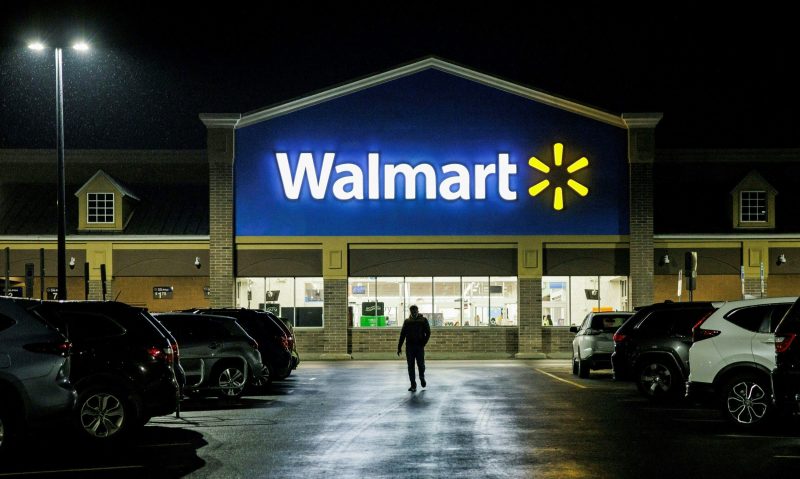American consumers are stressed. You can blame the persistently high prices seen throughout the economy right now.
In an interview with CNBC on Tuesday, Walmart CEO Doug McMillon said that customers started to become significantly more budget-conscious this spring as inflation began taking some big bites out of their finances — and that those pricing pressures are still a challenge as the winter holidays approach.
‘People may look at a two-year stack of inflation and say things are getting better,’ McMillon said. But for many families, prices ‘aren’t really coming down, they’re just stabilizing at a higher level,’ he said.
A shopper leaves a Walmart in Wilmington, Del. Samuel Corum / AFP – Getty Images
Overall price growth in the U.S. slowed in October, but, at 7.7%, it remains near four-decade highs. Asked whether a recession would be preferable to the current inflationary environment, McMillon responded: ‘Our focus is on serving these customers, and there are many of them that really need some help as it relates to inflation, so that’s our focus.’
Part of that focus is on groceries, McMillon said. Although prices for beef and produce are coming down a bit, the cost of chicken remains high. And for dry foods, McMillon said he expects to see double-digit inflation rates ‘around for a while.’
Rising wages for cashiers and the cost of dealing with theft are two additional factors causing prices to shift upward at Walmart stores. McMillon said that while the company has been able to successfully fill most of its roles, ‘pressure at cashier levels’ is leading to higher pay. On its website, Walmart says the average hourly wage for its U.S. front-line associates is now more than $17.
Meanwhile, theft at stores — or what is known in the industry as ‘shrinkage’ — has risen beyond historical averages, McMillon said. He urged state and local law enforcement to beef up prosecution of theft incidents.
‘If that is not corrected, over time prices will be higher and stores will close,’ McMillon said.

